11 small closet ideas – storage tips and stylish designs to make more of your space
Blessed with a tiny closet? Let our savvy small closet ideas save you from out of control shoe collections and tumbling piles of sweaters

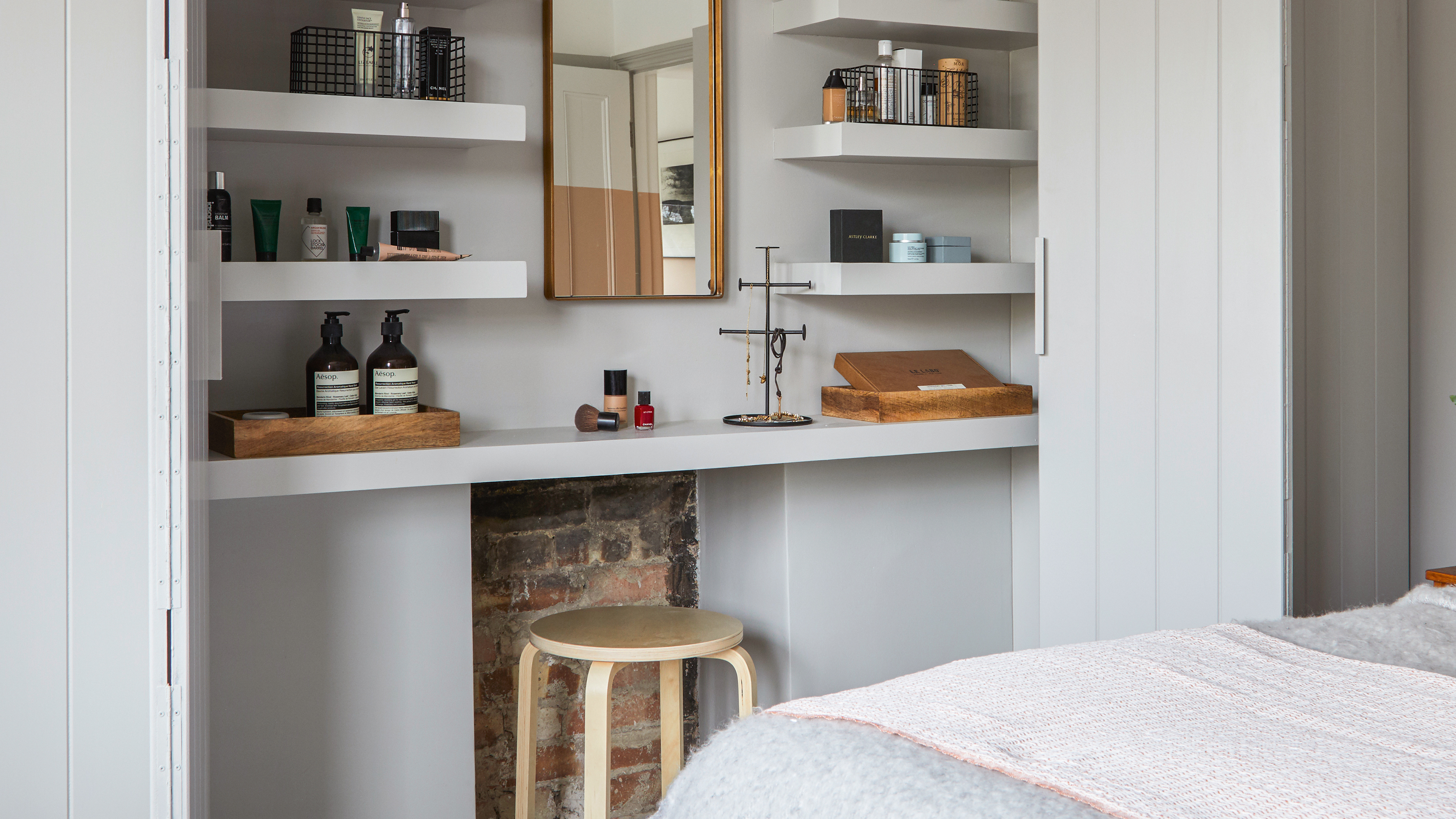
The Livingetc newsletters are your inside source for what’s shaping interiors now - and what’s next. Discover trend forecasts, smart style ideas, and curated shopping inspiration that brings design to life. Subscribe today and stay ahead of the curve.
You are now subscribed
Your newsletter sign-up was successful
As much as we would all love a spacious walk-in wardrobe to house our ever-growing shoe collection, most of us are not blessed with copious amounts of space when it comes to clothes storage. Small closets are the reality and therefore clever small closet ideas (so we can still keep the prior mentioned ever-growing shoe collection) are a must.
Just because there are not acres of room to play with, it doesn't mean you can't have a small closet that's practical and well organized, plus you want it to be visually pleasing too, of course. You just need a few handy closet organization ideas and styling tips to make the most of the space you do have. From storage solutions to clear the clutter, to closet design ideas if you are looking to add one into your current, we have you covered with our small closet storage ideas...
1. Organize and declutter
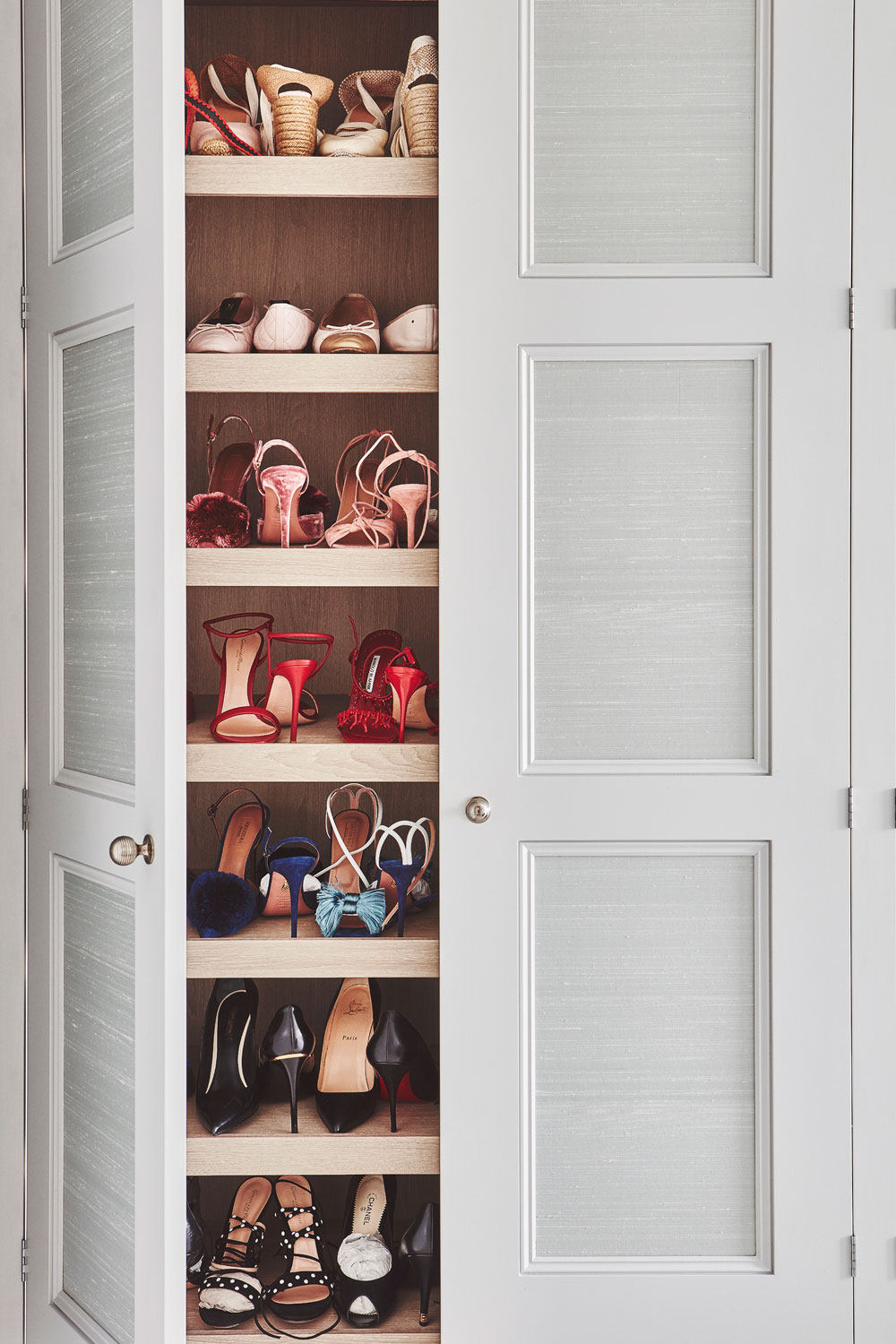
As much as you might not want to believe it, no amount of space saving storage is going to create a practical small closet that's a joy to use, if you are filling it with too much stuff. So the first step to organizing your small closet is to have a declutter.
Yep, that means getting everything out. 'Clear enough time to do the job properly - there is nothing more frustrating or disheartening than starting a project and then running out of time' advises Lucy Williams, founder of Please Organise Me.
'Do not try to do everything in one go - it is tiring and can be overwhelming. Instead, tackle one small area at a time. One shelf, one drawer, one section of hanging space etc. Have a bin bag for rubbish, a bag for items to donate or give away, a bag for “belongs elsewhere”, a pile for needs to be mended. Only put back items into the wardrobe or closet you want to keep.'
Then once you have made your cull, organize your clothes seasonally. There's no point filling up a small closet with winter coats and sweaters in the middle of summer, so rotate your wardrobe every few months. Anything you don't need to keep in your closet, store in boxes under your bed, or in a loft space if you have one. Save space by putting them into vacuum bags first.
Make use of one of the stylish storage baskets in our edit, to help organize your wardrobe and keep it looking aesthetically pleasing.
The Livingetc newsletters are your inside source for what’s shaping interiors now - and what’s next. Discover trend forecasts, smart style ideas, and curated shopping inspiration that brings design to life. Subscribe today and stay ahead of the curve.
2. Assess your storage needs
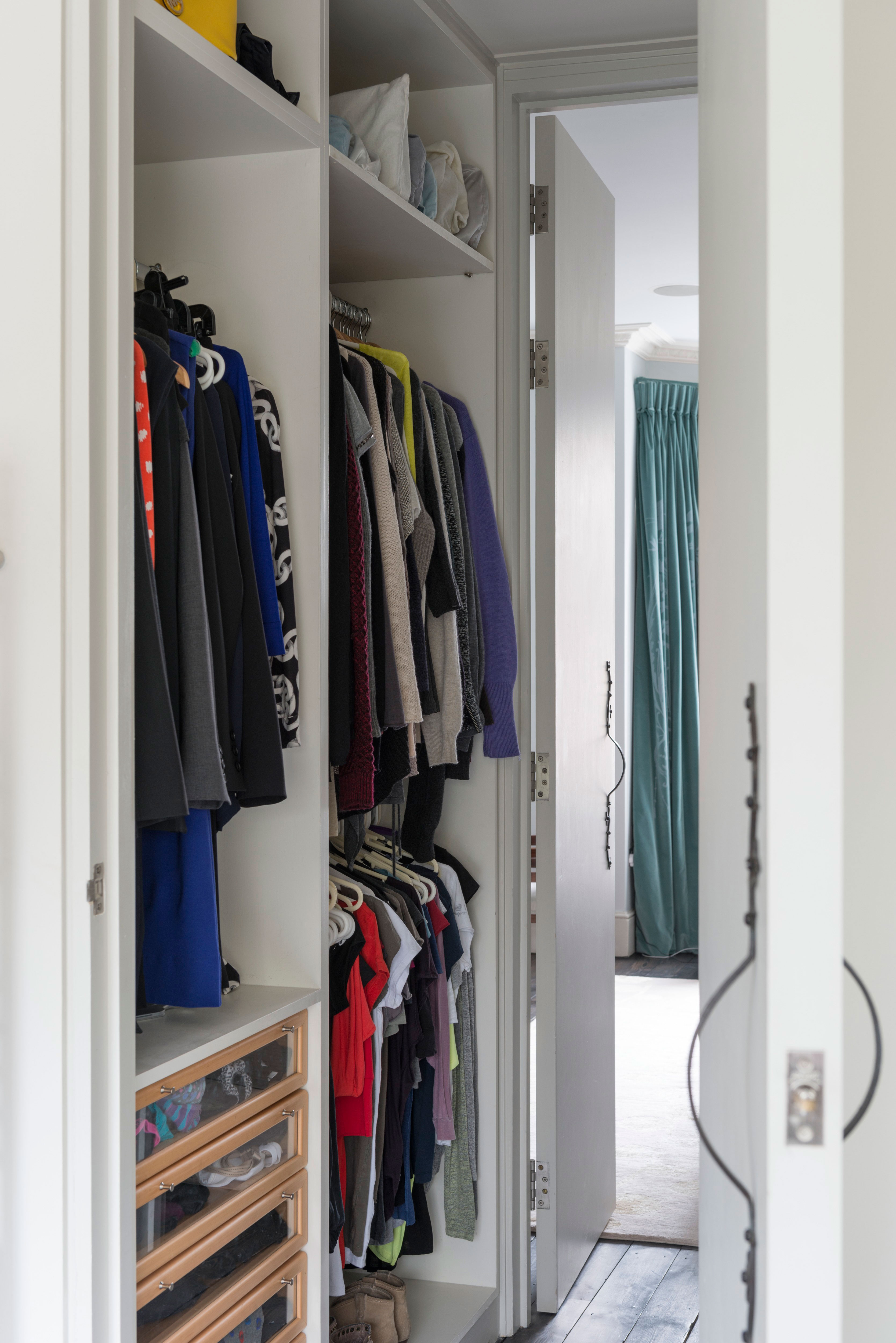
Once you can clearly see what you need to put back into your closet then you can start thinking about what storage would be best to maximize your space. Do you have lots of long items that will need rails? Or can you sacrifice some rail space for drawers or shelving? Do you want all your clothes on show or could you bring in some bins or baskets to roll up sweaters or t-shirts into?
We spoke with Vicky Silverthorn, professional organizer and founder of You Need a Vicky and these were her top tips for making the most of a small closet:
- Make use of all space including the inside of wardrobe doors - wall hooks work well
- Ensure your shelving is close enough together so you aren’t wasting any height. Add extra shelving if this is the case
- If you have space under your hanging clothing or even a long hanging rail but not many long hanging clothes add an extra rail
- Think carefully before ordering gimmicky inserts and additions that may hinder rather than help!
- Look at what you are folding versus what you are hanging and see if changing a habit would be more space-efficient
- If your wardrobe doesn’t touch the ceiling is there space for some moth proof storage boxes to sit on top that could hold a holiday clothing box or seasonal items/ items only used occasionally
- Fold clothing that won’t crease vertically in drawers to save space
- Use slimline hangers (check the sizes before you order!) to save huge amounts of space
3. Create a small closet with a room divider
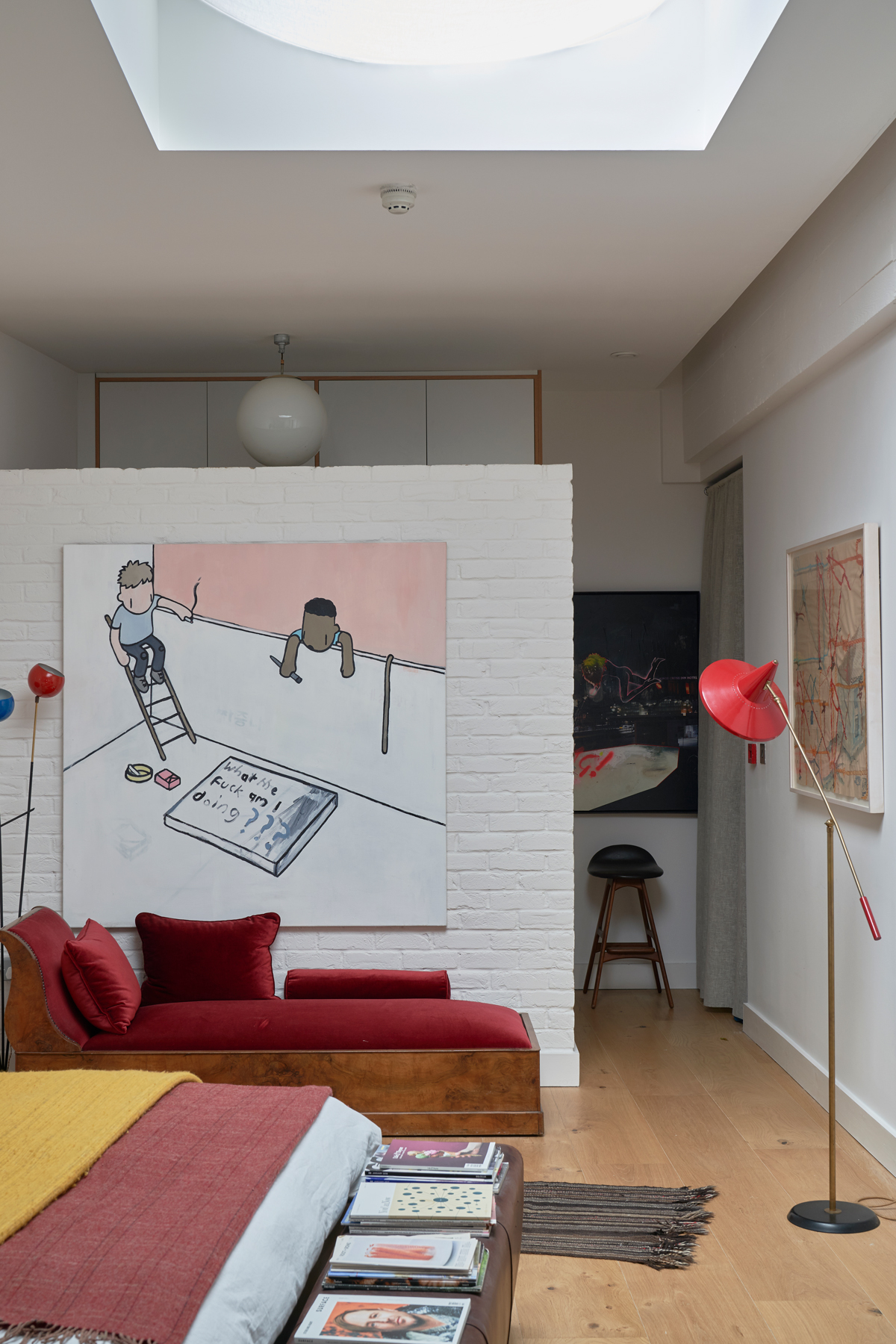
Right, serious storage talk out of the way, let's move onto lovely small closet designs that will not only make more of your space but look lovely too.
If you are squeezed for space, but want to create a small closet that still has that walk-in feel, be inspired by this walk-in closet idea. A half-wall separates a small closet from the rest of the bedroom, and yet it doesn't feel like you are compromising on bedroom space because the divider doesn't totally break up the room.
4. Choose glass doors
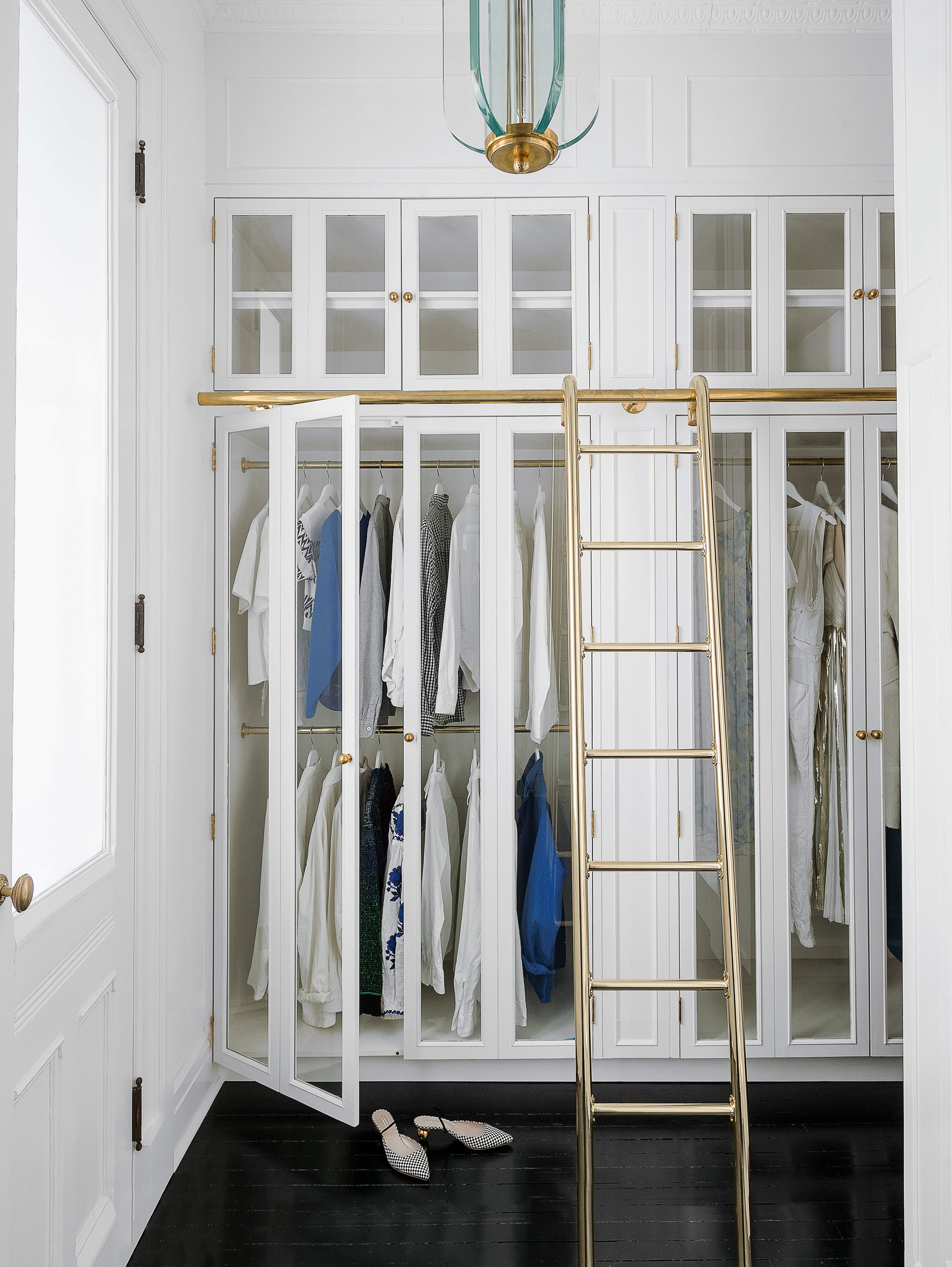
In a small closet, whether is a separate space or in your bedroom, you don't want it to feel boxy or add too much visual bulk. Opting for glass doors will feel more open and airy, plus being able to see into your closet will encourage you to keep it organized. Alternatively, line the glass doors with fabric so you still have the glass bouncing light around the space, but your clutter is well hidden.
5. Or double the space with mirrored doors
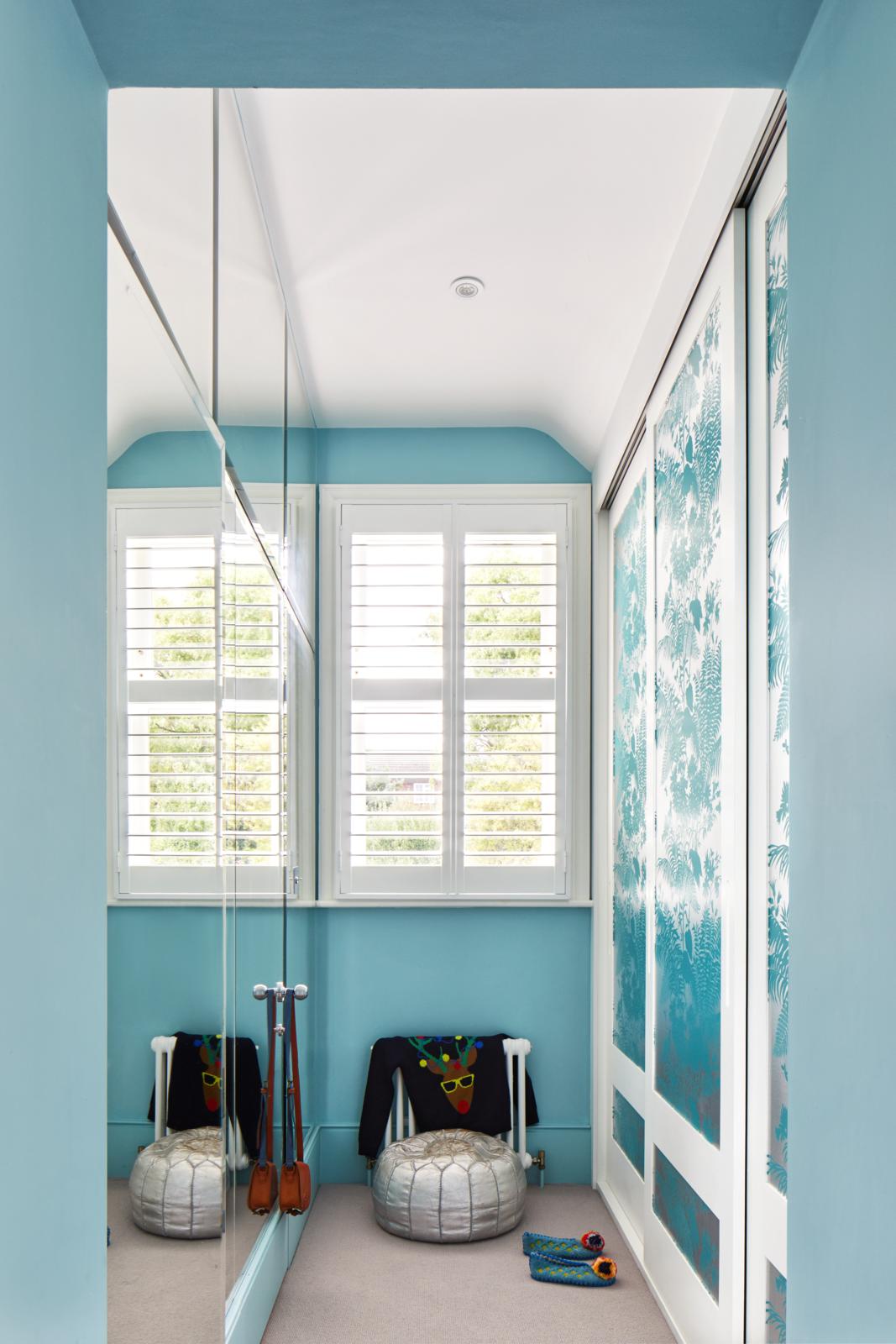
Mirrored doors work wonders in this small closet. The room appears double the size and filled with light, you really don't notice its narrow proportions. It might be the oldest trick in the book, but use this small closet idea in your own space and switch out your doors for mirrored ones and you'll instantly notice how much bigger it makes the space feel. This is a great option if you have a closet in a small bedroom too.
6. Make use of vertical space
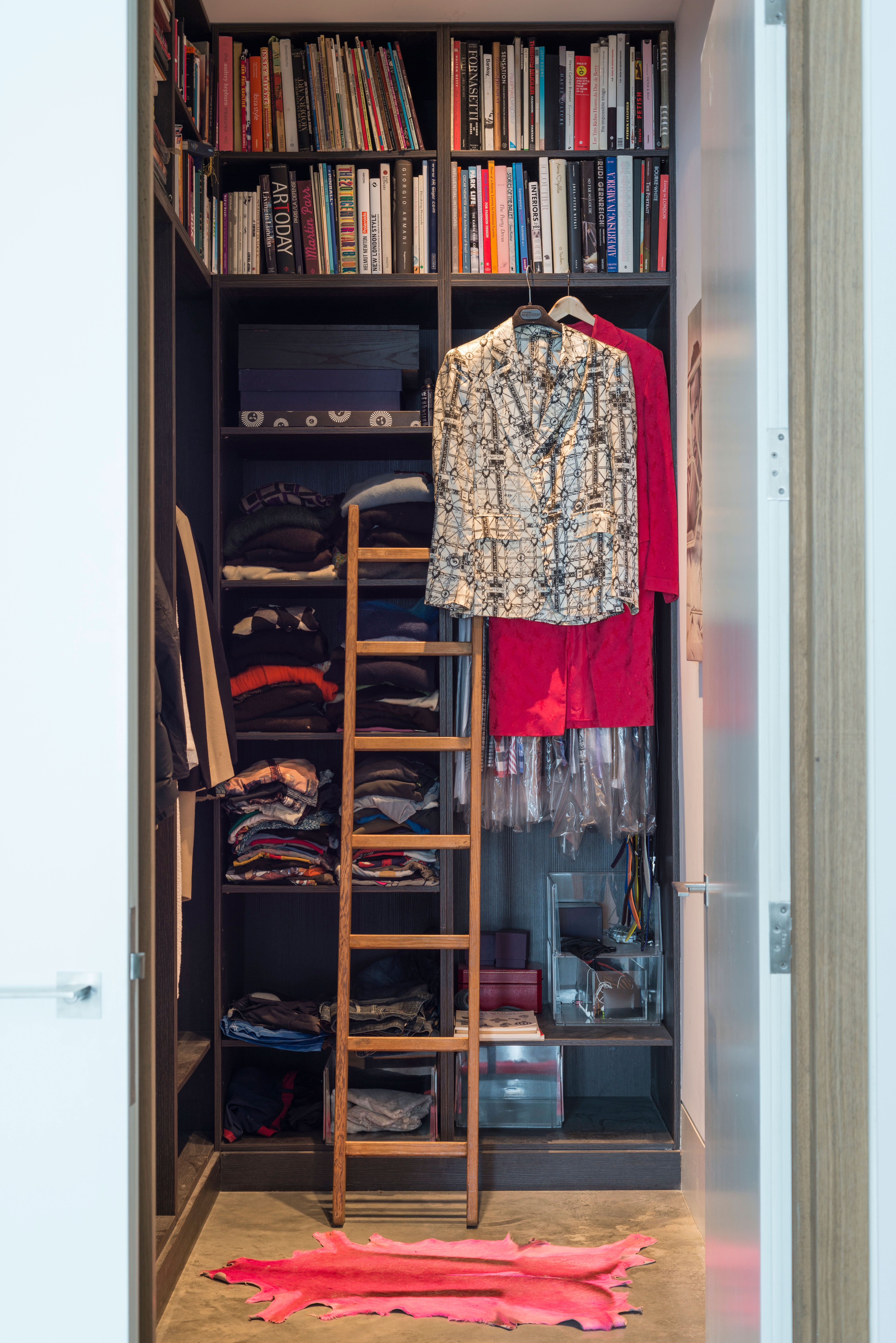
In small closets sometimes the only place to go is up, so don't leave any of that dead space above your wardrobe. If you are having new units built-in, go floor to ceiling with them, and if you already have your storage system in place, use the highest spaces for storing items you don't reach for on a daily basis. Pop them into baskets rather than just folding on shelves, that way you can pull down the whole basket rather than attempt to pull down a jumper that's at the bottom of the pile.
Also, note how in this very cute small closet, a ladder has been brought in which means those higher shelves can be put to good use and filled with items that see frequent use.
7. Blur boundaries with dark cabinetry
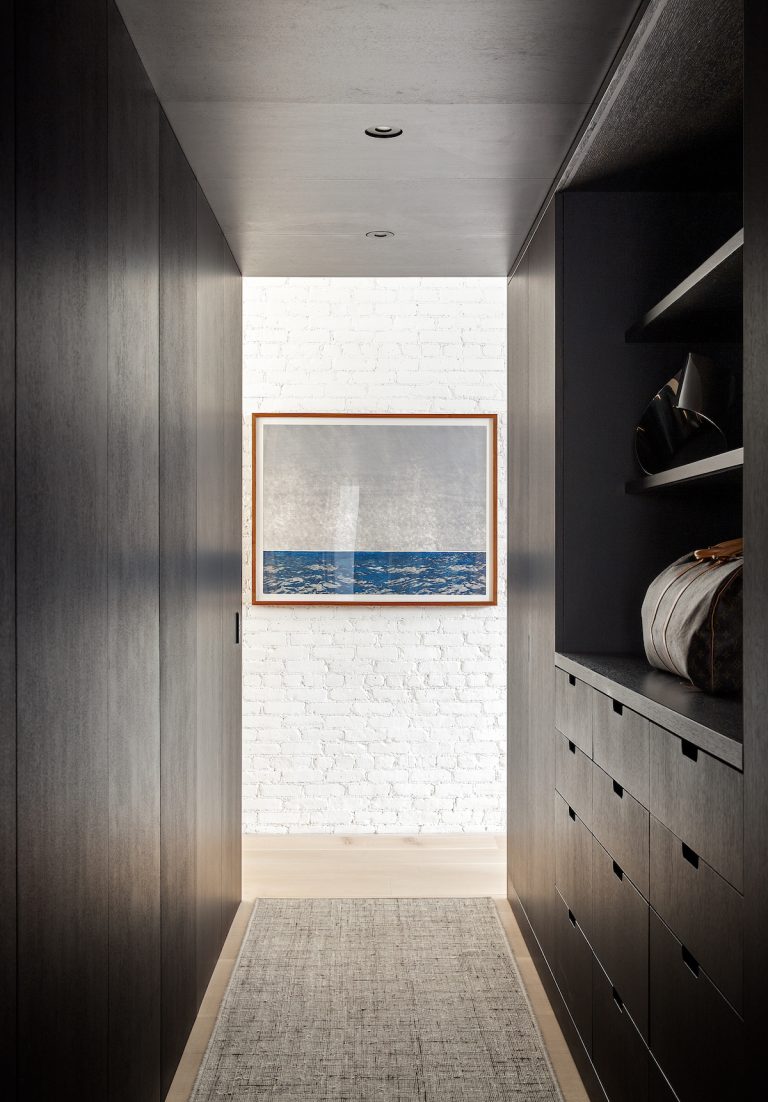
As well as looking incredibly sleek and being incredibly functional despite its narrow footprint, the dark wooden cabinets of this small walk-in closet actually make the space feel bigger.
Light colors have always been known for their color-expanding properties, but dark colors can have a similar effect, especially in really tiny spaces like closets. Going for a deep hue like black or navy blue blurs the boundaries of the room and tricks the eye into thinking the space is larger.
8. Disguise a small closet
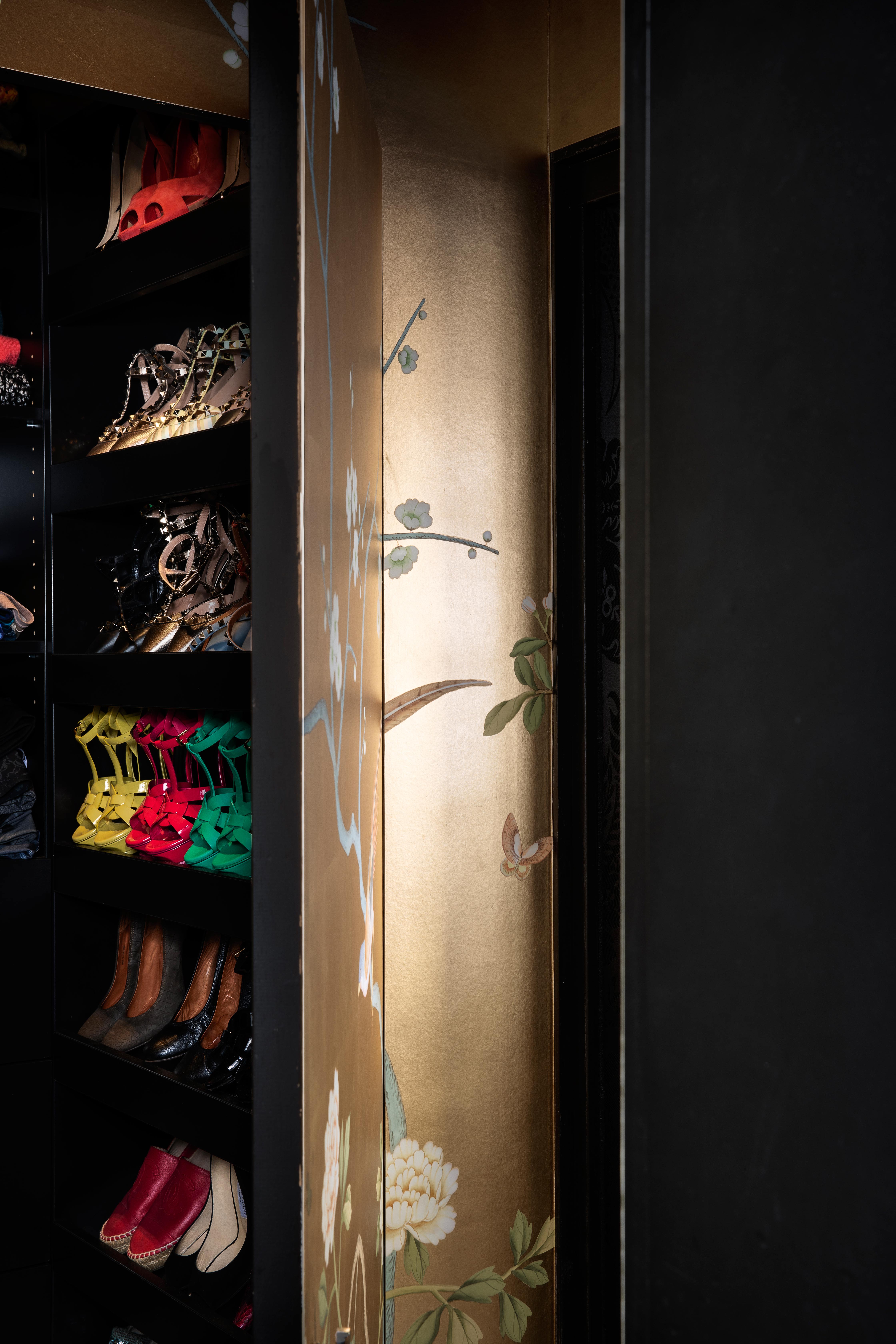
This is a lovely small closet idea if your closet is in your bedroom; wallpaper the doors so they blend into the walls. The gold, floral design gives this closet a really luxurious look despite it not being huge. And again, note how the inside is painted black so the space appears much bigger and deeper.
9. Choose sliding doors
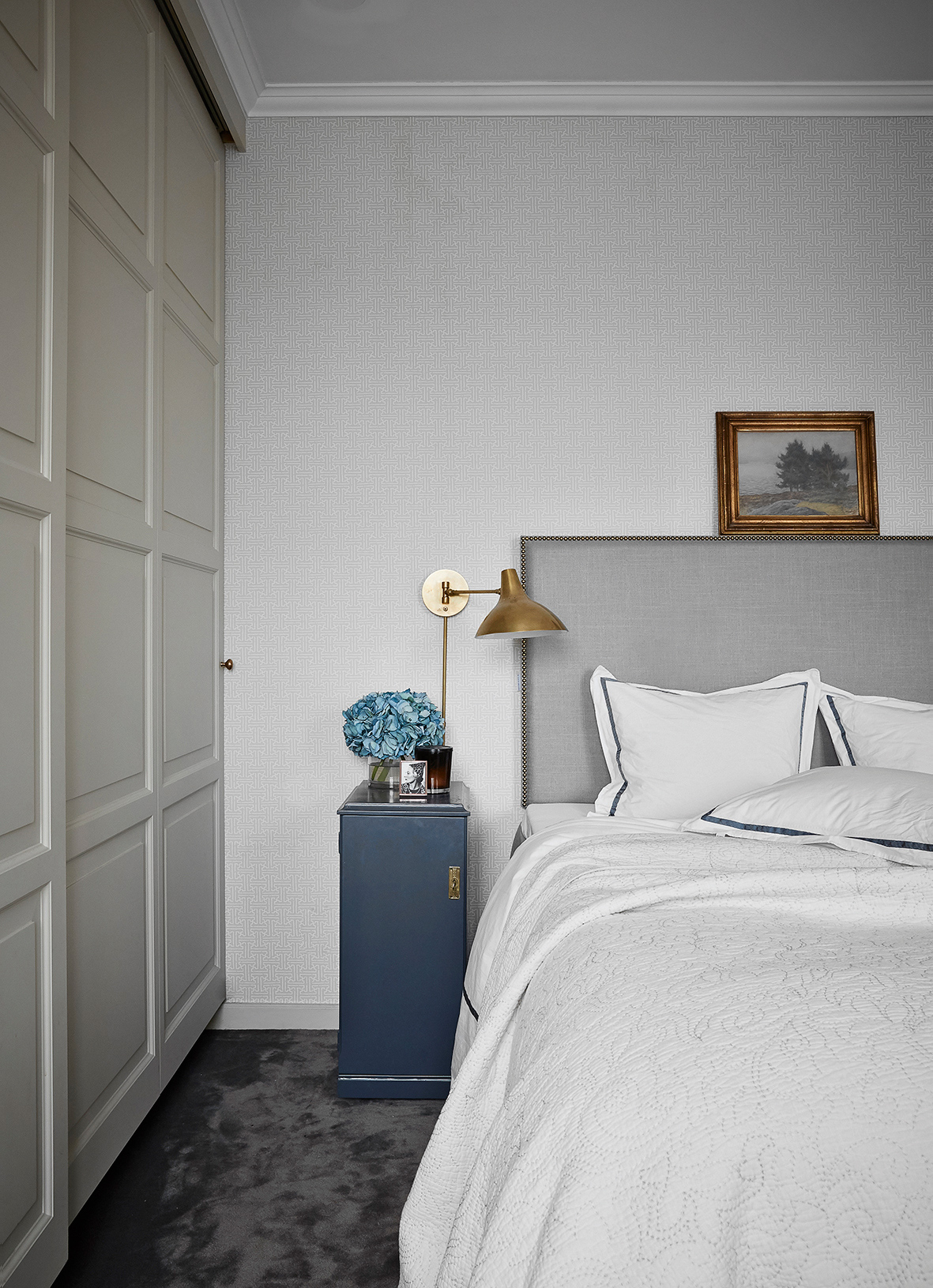
Another great space saver, opt for sliding doors. That way you don't have to consider the space needed for your doors to swing outwards. It offers a very minimal look too, as can be seen in this stylish grey bedroom.
10. Create a tiny hidden dressing room
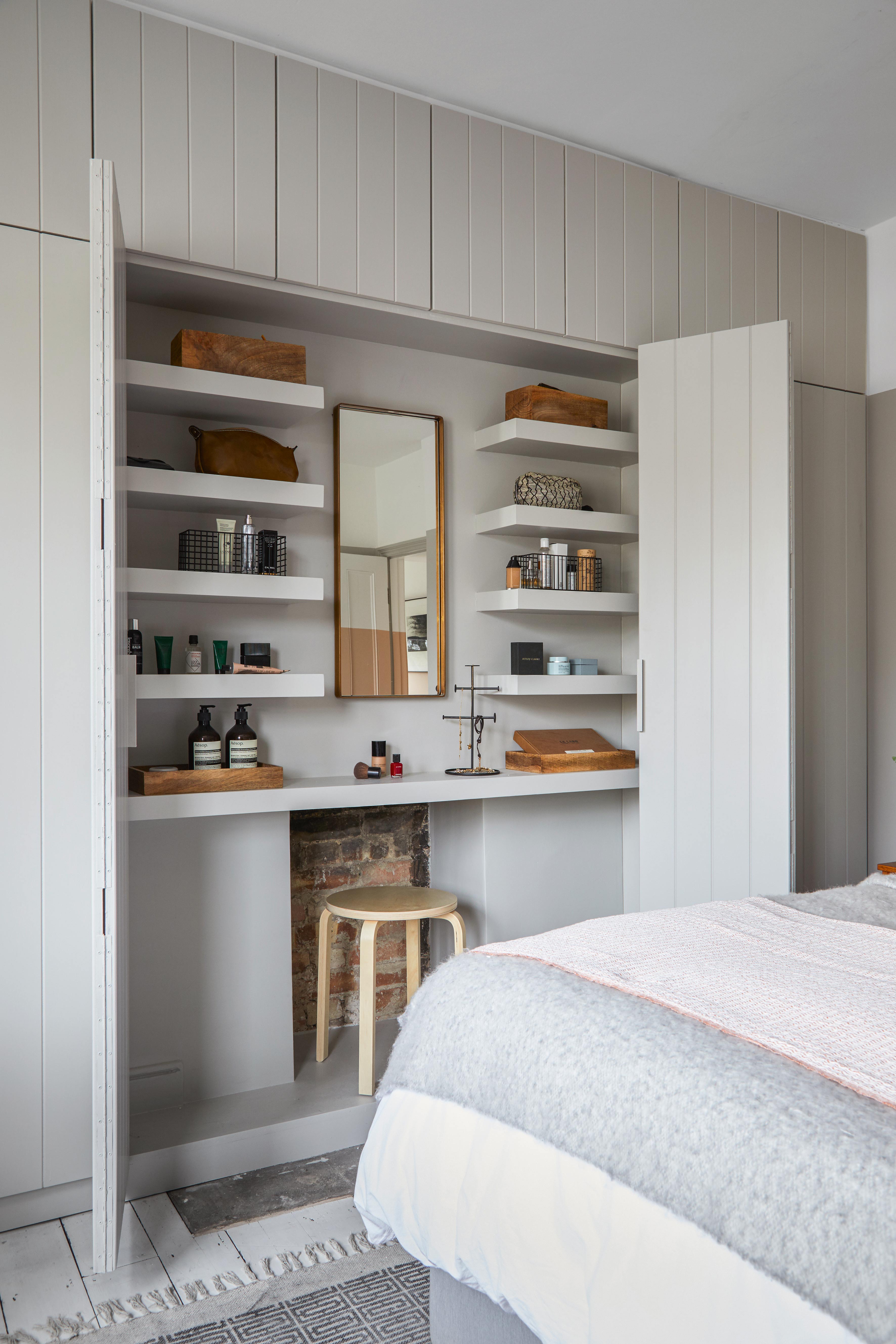
How fabulous is this closet? Such a narrow space and yet it's being used to its full potential. Rather than just fill your alcoves with two small closets, build-out slightly and use the space in between as a hidden dressing area and some handy extra bedroom storage. Once done using the space the doors just fold back over for a totally seamless look.
11. Add a narrow bench
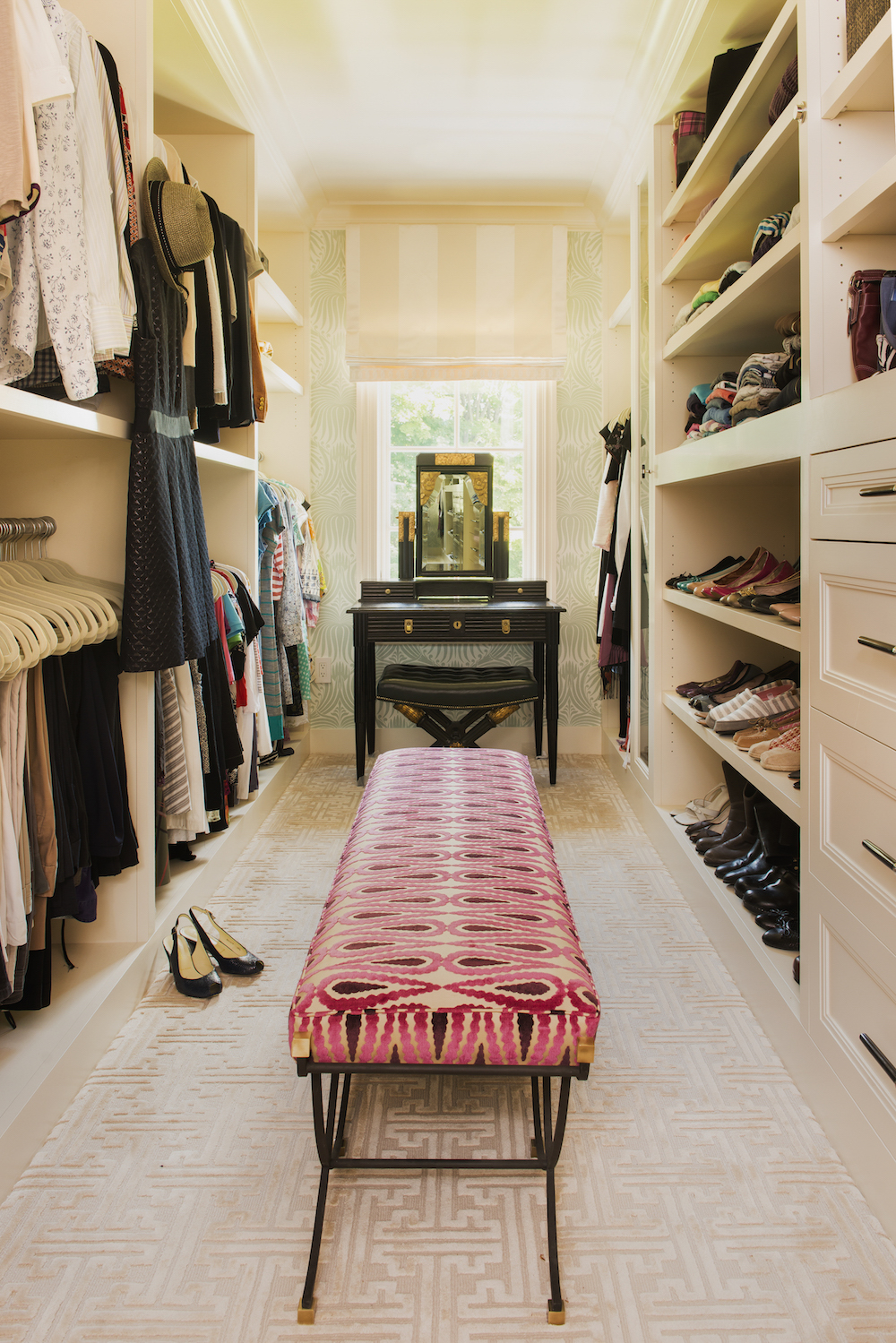
If you have a small walk-in closet that's long and narrow, make the most of that dead space in the center and add a slimline bench. They are perfect for providing extra surface space for folding clothes, a place to put your outfit for the next day, and a spot to perch while you get ready.
You could even opt for a bench with storage so you can store more bulky items that you still reach for regularly, but don't want to fill up your hanging space.
How do you maximize a small closet?
Going for a built-in design is the best way to maximize space in a small closet. That way you can really plan and create a storage space that suits you and your needs. And make sure you choose a variety of storage types too. Even if you prioritize hanging space or lots of shelving, always include space for boxes, baskets, and drawers for those small pieces and miscellaneous items that always seem to be cluttering up the space.
'On shelves, we recommend boxes you can pull out, containing eg t-shirts stacked horizontally (so that they are all visible), rather than piles of clothes which will get tipped over every time you try to find anything.' recommends professional organizer Lucy Williams.
'And do not stack lots of boxes etc at the bottom of the wardrobe or closet. It makes even the biggest wardrobes look cluttered and you cannot access items in lidded, stacked boxes.'
How do you organize clothes in a small closet?
How you organize clothes in a small closet will depend on how you use the space and what system would work for you. Would you rather have your clothes stored by type or by how often you reach for them? We'd recommend a mix of both, so hang like with like but then within those categories have your most frequently worn pieces be the easiest to reach.

Formerly the Digital Editor of Livingetc, Hebe is currently the Head of Interiors at sister site Homes & Gardens; she has a background in lifestyle and interior journalism and a passion for renovating small spaces. You'll usually find her attempting DIY, whether it's spray painting her whole kitchen, don't try that at home, or ever-changing the wallpaper in her entryway. She loves being able to help others make decisions when decorating their own homes. A couple of years ago she moved from renting to owning her first teeny tiny Edwardian flat in London with her whippet Willow (who yes she chose to match her interiors...) and is already on the lookout for her next project.